5 times New Hampshire brought hallelujah wins for Iowa losers
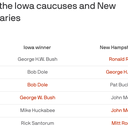
The winner of the first-in-the-nation New Hampshire primaries in recent competitive GOP presidential elections has typically had a good shot at becoming the nominee, even after losing Iowa.
Why it matters: While former President Trump is the indomitable GOP frontrunner, former UN Ambassador Nikki Haley is vying for a win in the Granite State after a third-place finish in the Iowa caucuses.
- Haley has joked that the New Hampshire primary will "correct" the results in Iowa, where Trump was projected victor with historic speed. Ron DeSantis took second place, dropping out of the race days later and endorsing Trump.
- Where New Hampshire once had a recent history of "course correcting" Iowa's winner, Trump's "anomaly" status upends that narrative, said Ron Bonjean, a longtime Republican strategist.
- "She's the conventional candidate versus the revenge candidate," he added.
State of play: Trump's win in Iowa further cemented his grip on the Republican party, which has stood by him after he was indicted four times in 2023, including over the Jan. 6 insurrection.
Of note: Recent New Hampshire polls have shown Haley in striking distance to Trump in the Granite State.
- She's increasingly positioned herself as Trump's top rival and has taken out ads attacking him after Iowa — a marked change from her tone over the last year.
- "You know Iowa starts it. You know that you correct it," she said on the campaign trail earlier this month.
Here are five presidential races where New Hampshire wins followed Iowa losses.
1980: Reagan changes campaign strategy after Bush wins Iowa

Ronald Reagan, who had Midwestern roots, decided against aggressive campaigning in Iowa, per Iowa PBS. But George H.W. Bush took the opposite tack, going to the state "early and often" before the caucuses.
- Reagan's loss led him to change his campaign strategy, the Washington Post reported at the time. His no-debate approach changed to a personal, boots-on-the-ground campaign.
- "I think it set the course for what followed," Reagan said to reporters after Bush conceded later that year.
- Bush, after the caucuses, became Reagan's main opponent — and eventually, his vice president.
Margin of win: 27 percentage points over his nearest opponent, Bush
Elected president: Reagan
1988: Bush targets Dole after Iowa loss, sweeps rest of election
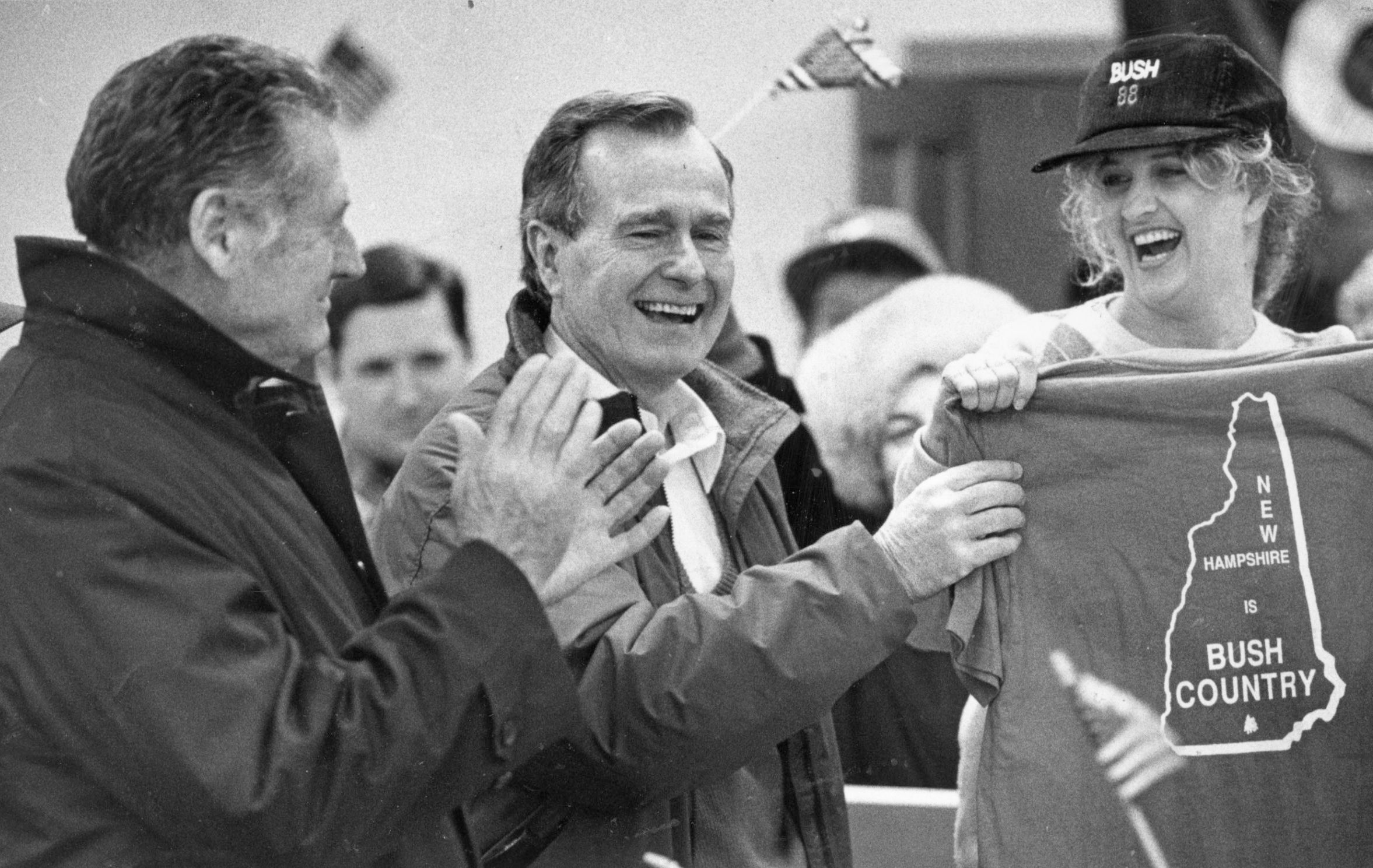
George H.W. Bush and Bob Dole aimed to gain the support of moderates in their campaigns. Bush came third in the Iowa caucuses, after Dole and televangelist Pat Robertson.
- After his Iowa loss, Bush took out last-minute negative ads about Dole, accusing him of being soft on taxes, per NBC News. Dole's response, after losing New Hampshire, dented his public image.
"I just wish him well and I'll meet him in the South," Bush said in an interview of the two candidates.
- "Stop lying about my record," Dole responded.
Bush won the rest of the primaries.
Margin of win: 9 percentage points over his nearest opponent, Dole
Elected president: Bush
2008: Huckabee dilutes religious pitches for N.H., but loses to McCain
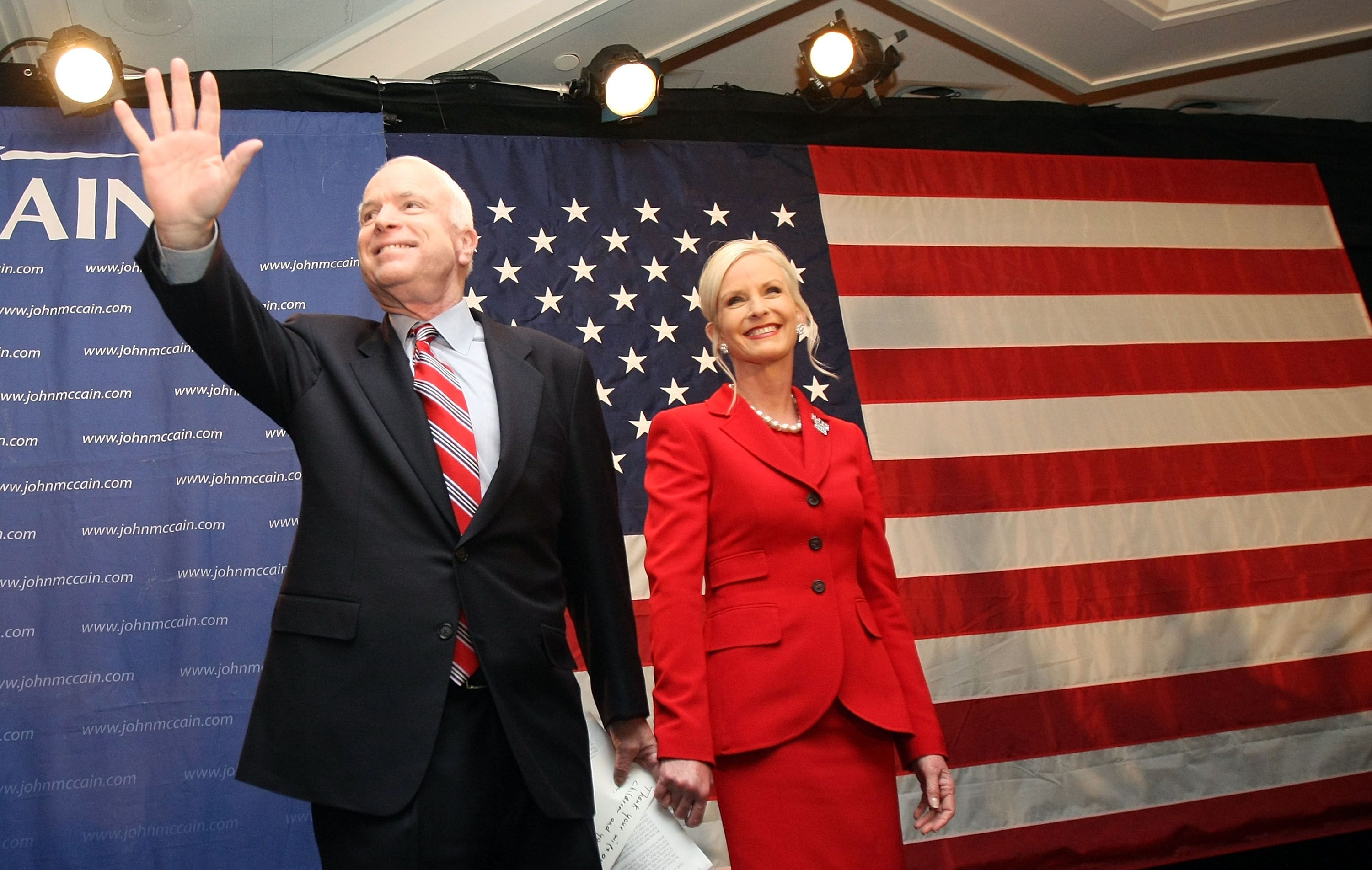
John McCain came back from a third-place finish in Iowa to take the lead in what eventually became his second unsuccessful bid for the White House.
- Mike Huckabee, previously governor of Arkansas, leaned on religion for his success in Iowa, which has a well-organized evangelical Republican voter base. McCain had finished third.
- "I didn't try to spin you," McCain said in his New Hampshire victory speech addressing voters. "I just talked to the people of New Hampshire, I talked about the country we love, the many challenges we face together and the great promise that is ours to achieve."
Of note: From Iowa to New Hampshire, Huckabee had dialed down some of his notable religious rhetoric in campaign commercials and speeches, the New York Times reported at the time.
Margin of win: 5.5 percentage points over his nearest opponent, Mitt Romney
Elected president: Barack Obama
2012: Romney surges ahead, Santorum momentum dips
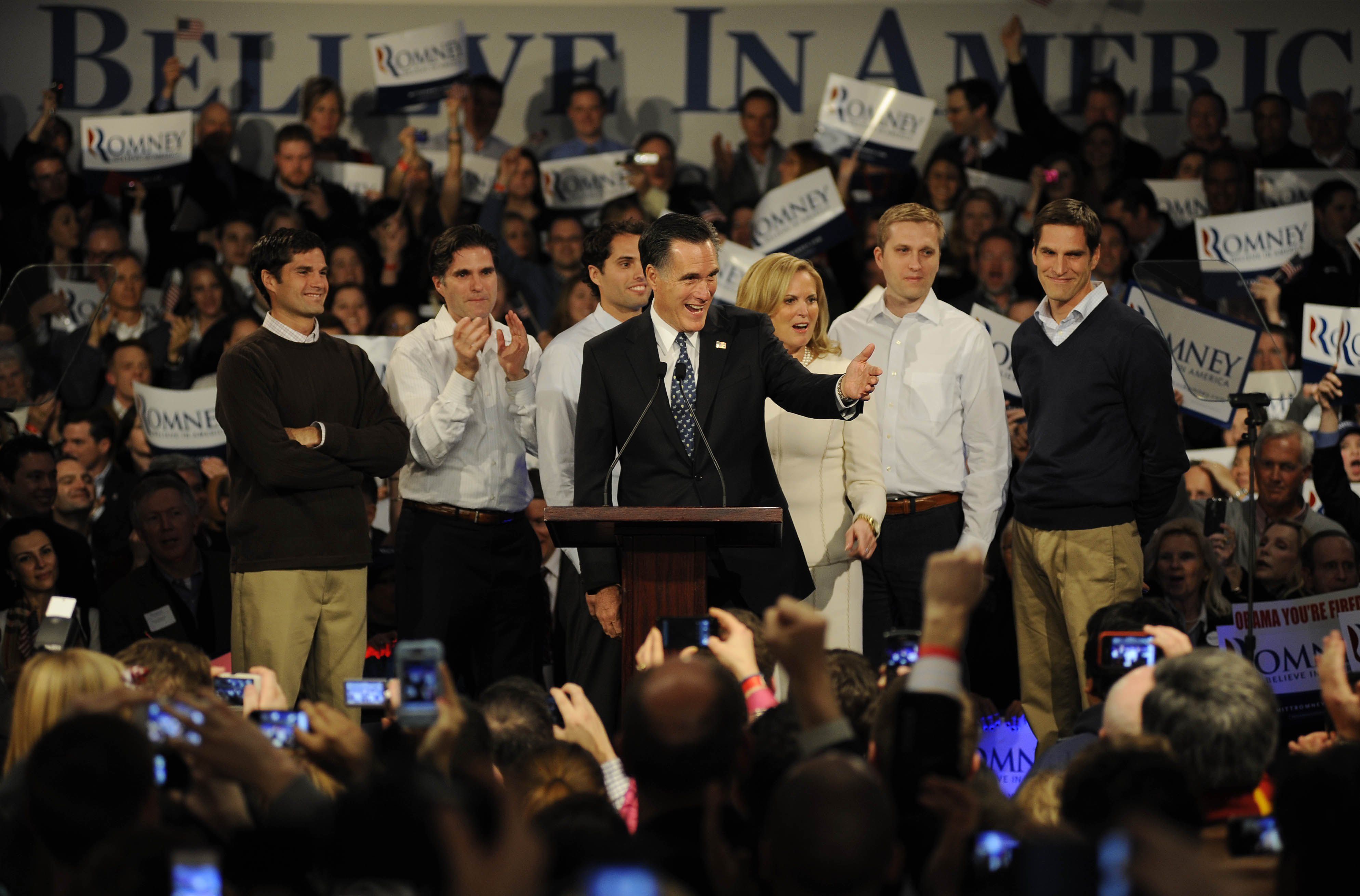
Romney, the former Massachusetts governor, turned back a "ferocious assault from rivals" in New Hampshire, the New York Times reported at the time.
Of note: At the time of his New Hampshire win, Romney was still regarded as the winner of the Iowa caucuses, by eight votes.
- Final results released later — the day of the South Carolina primary — determined Rick Santorum, former U.S. senator from Pennsylvania, was the winner by 34 votes.
- While initial reported results showed Santorum fifth in New Hampshire, he eventually took fourth overall.
Between the lines: Haley's candidacy is most comparable to Romney's, in terms of recent elections, because of its appeal to independents, Bonjean said.
- "Comparing Nikki Haley to Mitt Romney this time around is not going to help her with the MAGA crowd," he said.
Margin of win: 16.4 percentage points over Romney's nearest opponent, Ron Paul
Elected president: Obama
2016: Trump alleges election interference after Cruz wins Iowa
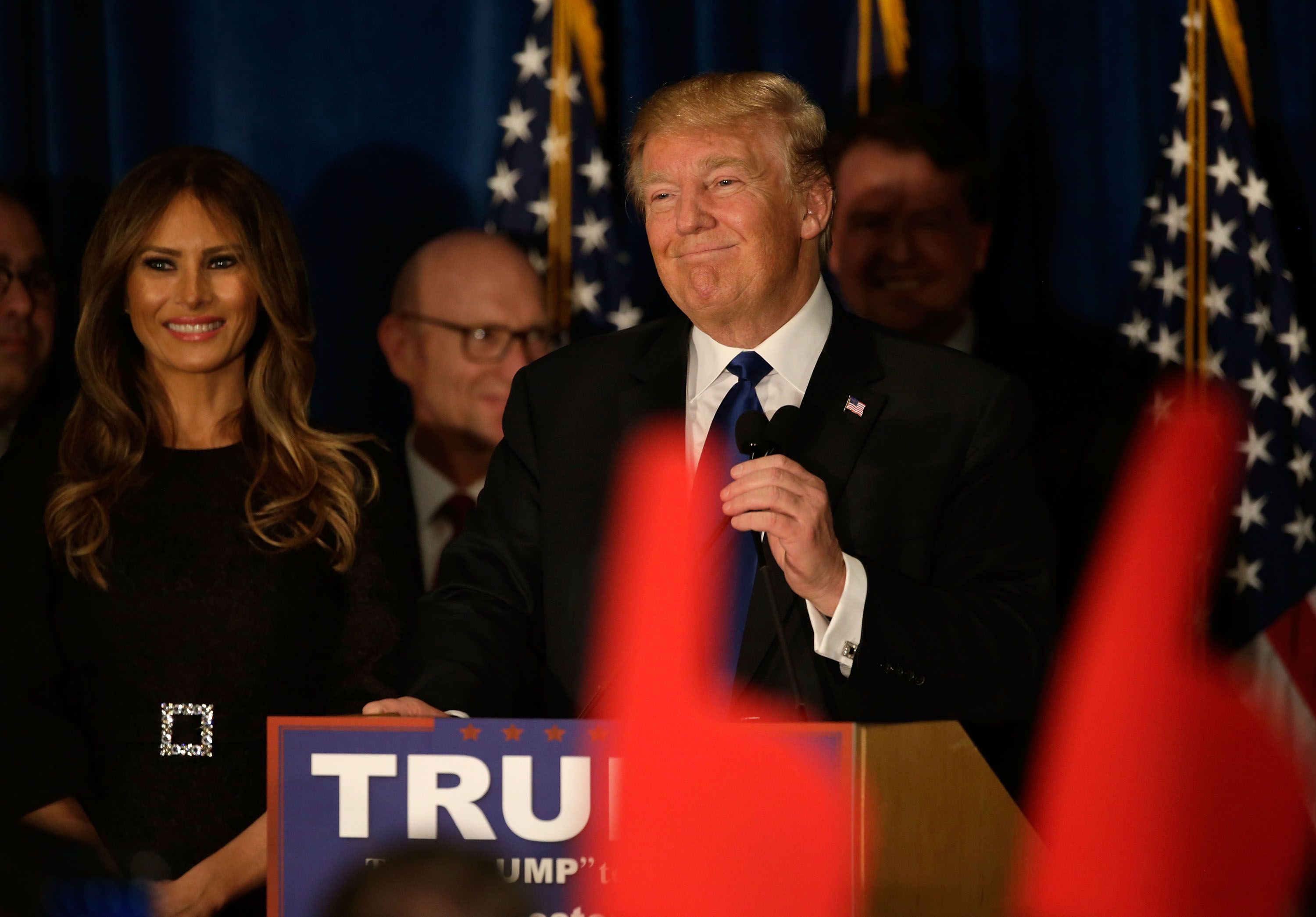
Trump changed his campaign strategy before the New Hampshire primary, partly in response to information on campaign numbers that Texas Sen. Ted Cruz's campaign manager gave Trump's team, Politico reported.
- Trump, who took second place in Iowa, called for a do-over after his Iowa loss and accused Cruz of stealing the election, per the AP.
- Cruz had focused his campaign heavily on Iowa, also appealing to religion.
Margin of win: 19.5 percentage points over his nearest opponent, John Kasich
Elected president: Trump
Go deeper: With campaign on the line, Nikki Haley plays it safe in New Hampshire
Editor's note: This story has been updated to reflect that Mitt Romney was considered the winner of the Iowa caucuses at the time of the New Hampshire primary, not Rick Santorum.